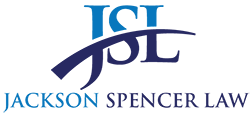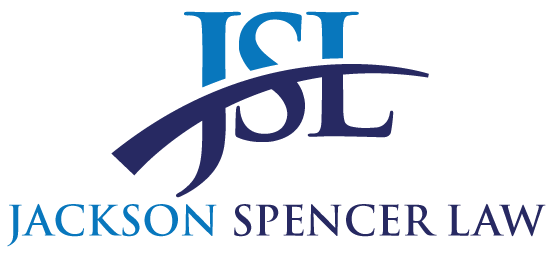After months of partisan deadlock, Congress finally passed a new coronavirus relief package at the eleventh hour (narrowly avoiding a government shutdown and a lapse in benefits for many Americans). While the direct payments portion of the bill was covered (and fought over) extensively, many are unaware of the provisions of this second relief package.
In this article, we will break down the six main components of the new relief package:
- Direct payments
- Unemployment benefits
- Rental assistance and SNAP benefits
- Small business assistance
- Infrastructure and education
- Vaccines and healthcare
We will briefly review each of the major provisions, starting with the stimulus payments that will go out to most Americans.
At Jackson Spencer Law, we represent employees who have questions about their workplaces’ responses to COVID-19.
Visit our services page for information about all the ways we can help.
Direct Payments
While most Americans (and a substantial number of lawmakers) wanted $2,000 stimulus payments, Congress could only agree on $600 checks. Every adult and child who earns $75,000 or less ($150,000 for married couples) will qualify for a direct payment of $600. Individuals earning between $75,000 and $87,000 will receive a smaller check, reduced proportionately based on individuals’ 2019 taxable income. Anyone earning more than $87,000 will not receive a direct payment.
This is a rather significant reduction of the $1,200 stimulus checks that representatives agreed to in March 2020. But Congress increased the amount of money American children will receive (the March bill allotted $500 per dependent instead of $600).
Unemployment
Unemployed workers will receive an additional $300 per week (to supplement state unemployment benefits) through mid-March. It is also worth noting that some self-employed individuals and gig workers who have been affected by the pandemic may qualify to receive extended assistance.
Prior to the pandemic, many unemployed gig workers did not qualify for unemployment assistance. Eligibility does vary state to state, so individuals will need to check with their local unemployment office to determine if they qualify for relief.
Rental Assistance and SNAP Benefits
With millions of Americans out of work, paying for housing and food has become increasingly difficult. To protect workers who have been laid off or otherwise unable to pay all of their bills during the pandemic, Congress extended the moratorium on evictions through January 31, 2021. The bill also provides $25 billion in rental assistance to be disbursed to individual states. Tenants in need of rental assistance will have to apply for aid through their state or local relief organizations to get access to funds for back rent or overdue utility payments.
The new bill also provides an additional $13 billion for the Supplemental Nutrition Assistance Program (SNAP) to help low-income families afford food. Like the unemployment assistance program, eligibility varies by state, so you will need to check with your local benefits office to determine if you qualify for supplemental nutrition benefits.
Farmers and agricultural workers have also been allocated $13 billion under the Coronavirus Food Assistance Program. The program was designed to provide financial assistance to food producers who have been directly impacted by the coronavirus pandemic.
Small Business Assistance
The Paycheck Protection Program (PPP) was also extended, with an additional $285 billion in funding. Small businesses, as well as nonprofits and local newspapers, can apply for these loans to help meet payroll expenses. The loans are administered through the Small Business Administration, and some organizations may even qualify for loan forgiveness as long as the loan funds are used for eligible payroll costs.
A slightly less popular provision within the newest relief bill also permits businesses to deduct meals as a business expense. In effect, the bill restores luxurious business deductions that have been largely outlawed since the Tax Reform Act of 1986. Once again, business owners will be able to deduct leisurely business lunches and entertainment expenses incurred before January 1, 2023.
Infrastructure and Education
The bill includes $7 billion to increase access to broadband internet – a necessity for students and employees who must use the internet for remote learning and work. $85 billion was also allocated to assist schools and colleges with re-opening. According to the Department of Education, the additional funding is to be used to “measure student progress, identify students who have fallen behind, and provide them with…resources that will bring them up to grade level.”
Also, the transportation industry has experienced major upheaval since the beginning of the pandemic. The relief package includes $45 billion in aid for airlines, mass transit, highways, and Amtrak to help them pay the salaries of their employees.
Vaccines and Healthcare
The bill sets aside $68 billion for the purchase and distribution of COVID-19 vaccines as well as coronavirus testing. $20 billion of this funding is to be used to make free vaccines available for anyone in need.
Tacked on to the bill is a little-known medical provision that was intended to end surprise medical billing (and not just those bills related to coronavirus). The bill stipulates that patients are to be provided with a cost estimate at least three days before any scheduled procedure. Also, any medical billing disputes are to be subject to arbitration – a potential cost-saving measure aimed at keeping billing disputes out of the court system.
We Are Here to Help
The attorneys at Jackson Spencer fight for the rights of Texas employees, and we are here to help you navigate uncertainty in the wake of the newest coronavirus aid package. Whether you need help with unemployment compensation claims, unemployment denial appeals, or to determine if you qualify for coronavirus aid, we can assist. Contact our office for more information or to schedule a free, no-obligation consultation.



